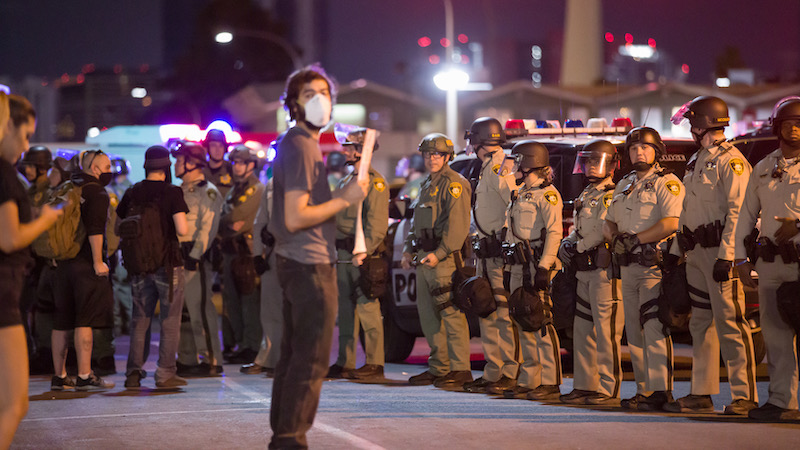Answers in public policy have a short shelf-life, as circumstances change so fast that a brilliant solution one day may become a terrible idea the next.
So we adopt principles. Just think, if a child learned “2+2=4” but never learned the rule of addition, they wouldn’t know what to do when faced with a new math problem. Similarly, principles provide us with a consistent approach to the diverse problems we face. They don’t always work as neatly as arithmetic, but they’re a good place to start.
Last week at the Values & Capitalism event, “Is the Good Book Good Enough?,” Michael Cromartie highlighted one of the most important—and yet neglected—principles for Christians, particularly those in the political arena. Watch this video, and you’ll hear four key words:
Now, but not yet.
Free-market economics, at its best, rests in the tension of this paradox. It admits the inherent corruption of man and attempts to turn our self–interest to serve the common good, but it also encourages freedom that captures the ingenuity of man. Other economic systems aren’t so balanced.
Both socialism and radical individualism place their hope in man and in his ability to remedy his present situation. But this false hope must give way to disillusionment, as Beatrice Webb, co-founder of the London School of Economics, recognized when she wrote:
Somewhere in my diary—1890?—I wrote “I have staked all on the essential goodness of human nature…” [Now thirty-five years later I realize] how permanent are the evil impulses and instincts in man—how little you can count on changing some of these—for instance the appeal of wealth and power—by any change in the [social] machinery…No amount of knowledge or science will be of any avail unless we can curb the bad impulse.Without realizing it, Webb came face-to-face with the reality of the “not yet” of living in the City of Man. She still hoped to “curb the bad impulse,” but no human can accomplish that goal. Irving Kristol described this same problem in socialism in his 1979 essay “No Cheer for the Profit Motive.”
For [socialism] to exist would require a kind of radical transfiguration of human nature that only a messianic deliverance can bring us. And though socialism is messianic enough in its pretensions, it turns out to be all-too-human in actuality.The truth is, we all struggle with the temptation to ignore the “not yet” of this present age. Whether it takes shape in instant gratification or even good intentions promoting bad policies, our entire culture seems bent on the rallying cry of “now!” We should desire to fix our broken systems, but we must temper this ambition by thinking seriously about how to live in the tension of the City of God and the City of Man. Here at Values & Capitalism, we’ve already discussed what this looks like in poverty and work. As we continue to wrestle with this question, we welcome your input and hope you will suggest new areas where we can apply this principle. Like Mr. Cromartie warns, this tension is “one of the most difficult concepts for religiously motivated political activists to grasp.” It requires a delicate balance. So as we go about our work and pursue the betterment of this City of Man, let us remember that we still patiently wait for the hope promised by the principle of “not yet.”



